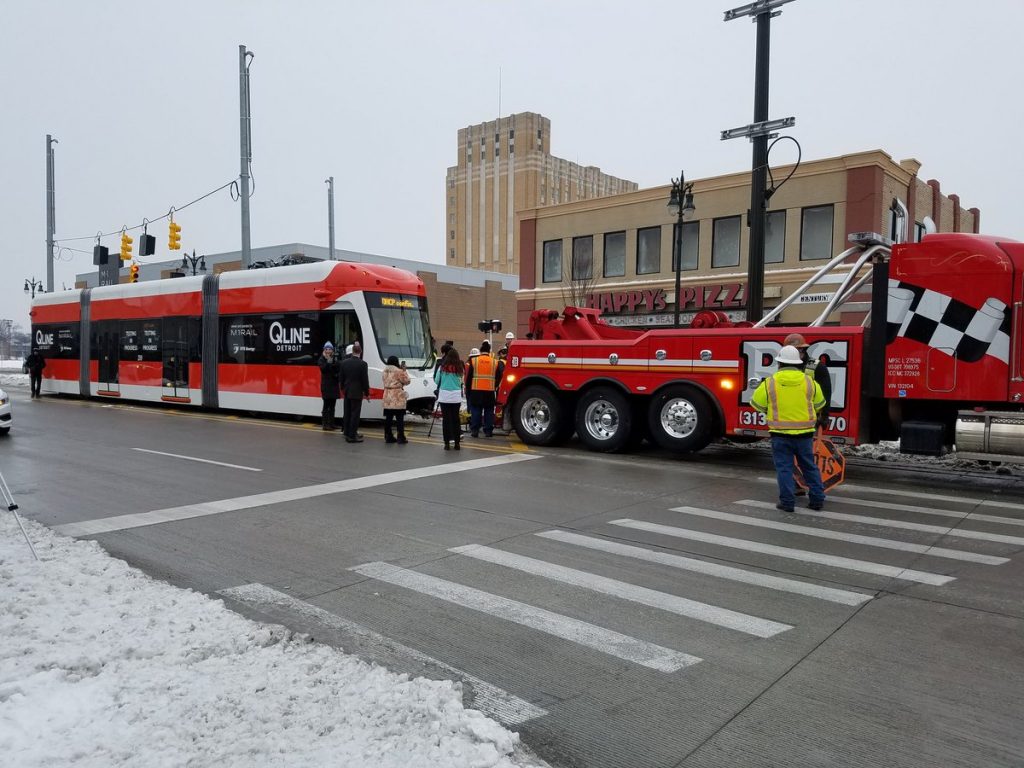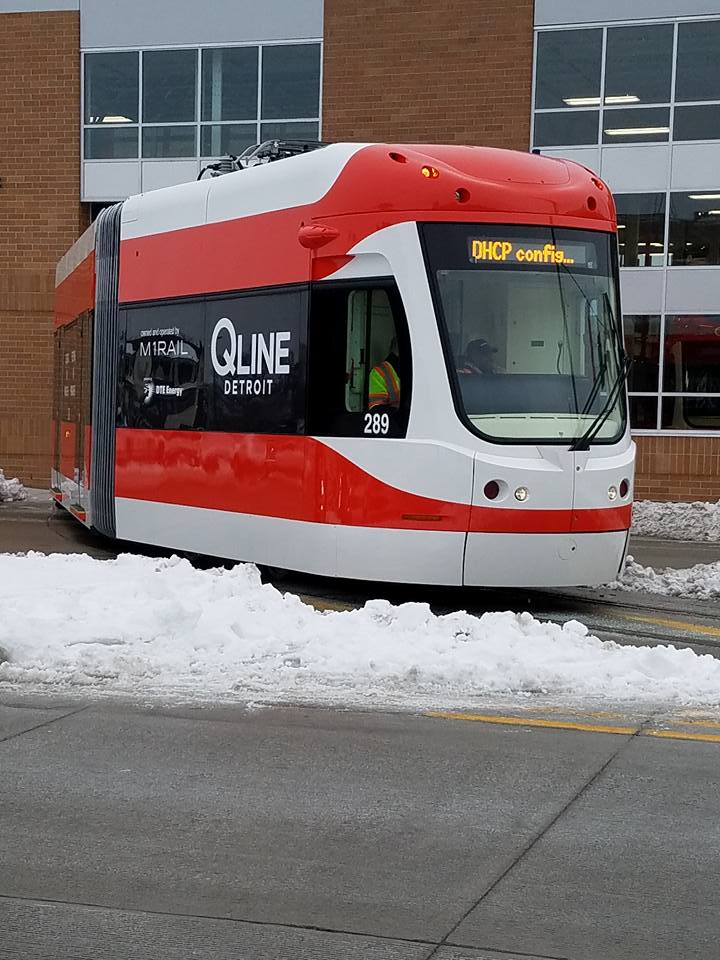Cincinnati’s Streetcar Has Issues… A Bad Sign For QLine?
Ridership, ticket buying, and schedule problems are plaguing Cincinnati’s new streetcar system.


For the first time in 60 years, you might see a streetcar moving along the streets of Detroit.
M-1 Rail began testing the QLine cars along the new rails on Woodward Avenue on Tuesday morning. Service is scheduled to begin in the spring.
The business leaders and foundations who are funding the streetcar project say it will spur economic development and provide a needed link between Downtown and Midtown.
Of course, not everyone is excited about the project. Skeptics say it’ll turn out to be nothing more than another People Mover-like service that few will use on a regular basis. According to a recent article published by CityLab, those critics might point to Cincinnati’s modern streetcar system as an example of how these projects can turn into a blunder.
CityLab Senior Editor David Dudley wrote that article, titled “Cincinnati has a streetcar problem.”
“They’re only drawing half of what they were expecting for the month of November,” says David Dudley, highlighting disappointing ridership numbers as the weather has gotten worse.
“Some of these problems are related to sort of growing pains… The bigger issue, I think, for Cincinnati is that they’re not getting the cars moving on time. The real-time estimates of when your streetcar shows up aren’t very accurate and the cars are running late and you can’t really rely on them as a way to get around.”
But Dudley says these are problems that can be fixed, and says the city still has a lot of reasons to be optimistic.
Detroit Today Host Stephen Henderson also speaks with Crain’s Detroit Business reporter Bill Shea, who grew up in Cincinnati, about how the M-1 Rail test went and how Detroit’s streetcar line compares to Cincinnati.
“I know the M-1 Rail folks have paid close attention to Cincinnati,” says Shea. “And I think some of those problems Cincinnati has faced very well could happen here.”
“That issue of timing is absolutely critical,” he says. “The trains have to run on time.”
Click on the audio player above to hear the full conversation.
